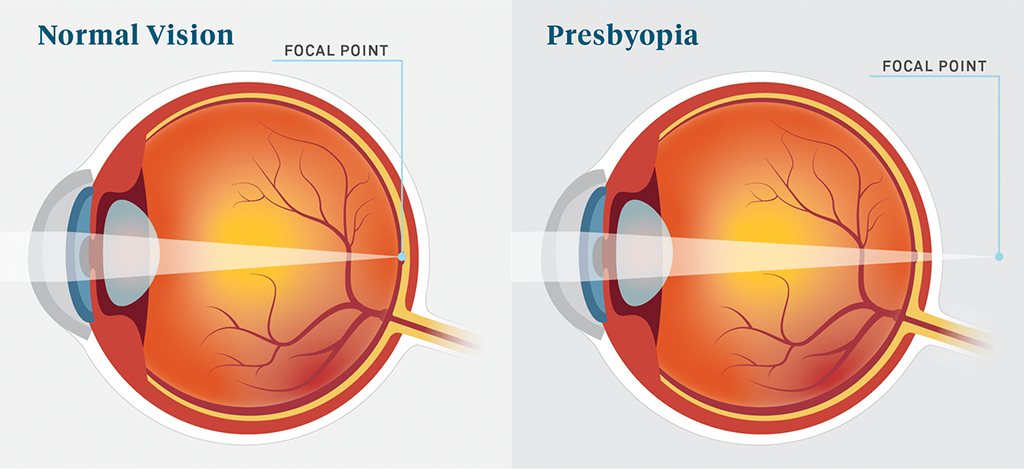Presbyopia

Comprehensive Eye Examinations
- Refractive Assessment: Our team conducts thorough eye examinations, including refraction tests and near vision assessments, to accurately diagnose presbyopia and determine the extent of refractive error.
- Assessment of Accommodative Function: We evaluate the ability of the eye’s lens to change shape and focus on near objects, assessing accommodative function to determine the impact of presbyopia on near vision.
- Identification of Coexisting Conditions: We identify and address any coexisting vision conditions, such as astigmatism or cataracts, that may exacerbate symptoms of presbyopia and affect visual clarity.
Customized Treatment Options
- Prescription Eyewear: Depending on the individual’s visual needs and lifestyle preferences, we prescribe customized eyeglasses or contact lenses to correct presbyopia and improve near vision. Our experienced opticians help patients select the most suitable eyewear options, including progressive lenses, bifocals, or multifocal contact lenses.
- Refractive Surgery Consultations: For patients seeking a permanent solution to correct presbyopia, we provide referrals for refractive surgery consultations, including refractive lens exchange (RLE) or corneal procedures such as monovision LASIK or PRK. These surgical options can reduce dependence on reading glasses and improve near vision.
- Monovision Correction: In cases where surgical intervention is not desired or feasible, we offer monovision correction using contact lenses or eyeglasses. This approach involves correcting one eye for distance vision and the other eye for near vision, allowing individuals to maintain functional vision at various distances.
Ongoing Management and Follow-up Care
- Regular Eye Examinations: We emphasize the importance of regular follow-up visits to monitor the progression of presbyopia and adjust treatment plans as needed. Our team provides ongoing support and guidance to ensure optimal visual outcomes and patient satisfaction.
- Lifestyle Modifications: We educate patients about lifestyle modifications and visual hygiene practices to manage presbyopia effectively. This includes proper lighting for reading, taking frequent breaks to rest the eyes, and maintaining overall eye health through a balanced diet and regular exercise.
- Patient Education: We empower patients with knowledge about presbyopia and its management, discussing treatment options, potential side effects, and realistic expectations. By actively involving patients in their care, we ensure informed decision-making and successful outcomes.

